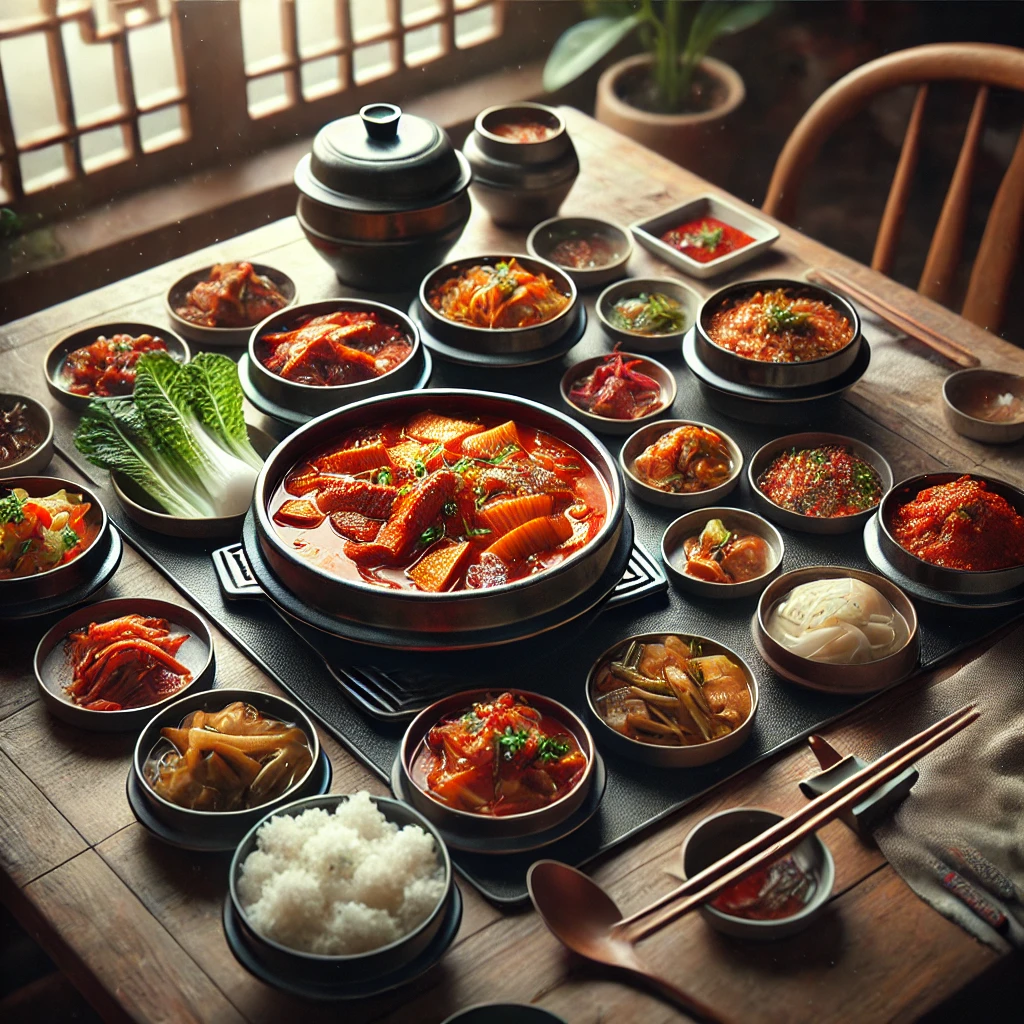Sharing food carries warmth beyond its temperature—a kind of soul-sustaining heat that comes from the hands offering it, connecting people across cultures. a proverb captures this sentiment: “찬밥도 나누면 달다,” meaning “Even shared cold rice is sweet.” It may seem simple, but it holds a profound truth that spans cultures, continents, and centuries. Across Korea and other nations, sharing food, however humble, elevates it from mere sustenance to something greater: connection, gratitude, and love.
The Korean Rice Bowl: A Symbol of Sharing
In Korea, rice represents more than food—it embodies history, family, and community. For centuries, Koreans have relied on rice as a daily staple. It defines the table, but its true power comes from sharing. A bowl of cold rice, though unremarkable alone, gains meaning when offered to someone. The proverb suggests that sweetness in food comes not from the dish itself but from the act of sharing. Whether the rice is cold or reheated, the warmth lies in generosity, breaking down barriers between people.
This concept of finding sweetness in shared food is not unique to Korea. From East to West, sharing food goes beyond hospitality—it’s essential to life, reflecting how communities survive and thrive together.
Couscous in Morocco: The Universal Language of Sharing
In Morocco, couscous echoes a similar sentiment. This dish, rooted in history, is often served in a communal bowl at the table’s center. Family and friends gather around, eating with hands or wooden spoons, sharing the same dish. This sharing extends beyond the food itself; it symbolizes unity, trust, and belonging. In Amazigh culture, a visitor is welcomed even during scarcity, echoing the generosity found in Korea’s proverb.
Though humble, couscous transforms through sharing, connecting people regardless of status or wealth. When everyone dips into the same bowl, hierarchy fades, replaced by appreciation for the meal and company.
Italian Bread: Pane e Companatico
In Italy, food drives community, and few things embody this more than bread. The saying “Pane e companatico” translates to “bread and whatever else you can find,” meaning that even a simple meal becomes enough when shared. Bread, especially in rural Italy, is a family meal staple, passed around the table as a symbol of togetherness. Even the most modest meal, paired with olive oil or cheese, gains fulfillment through sharing.
During tough times like World War II, Italian families had little beyond bread, yet they shared willingly, recognizing that breaking bread together nourished more than just the body. The sweetness of shared bread, like cold rice, lies in the relationships it strengthens.
Onigiri in Japan: A Symbol of Care and Connection
In Japan, the tradition of onigiri—rice balls filled with pickled plums or salmon—reflects this proverb’s essence. Typically homemade and shared with family or friends, onigiri brings comfort, regardless of temperature, through the care behind its preparation.
In Japan, giving food expresses care, whether in a bento box for a loved one or onigiri for a friend on a journey. Like in Korea, food serves as a medium for connection, turning even humble rice balls into something sweet when shared.
Mexico: Tacos and Togetherness
In Mexico, food connects deeply with family and tradition. Tacos, one of Mexico’s most famous dishes, symbolize community and flavor. Mexican culture often prepares food in large quantities for more than one family, embracing the whole neighborhood. During celebrations, large tables filled with dishes welcome everyone.
Simple ingredients like corn tortillas, beans, and chili peppers transform into a feast when shared. Generosity, much like Korea’s cold rice, turns these dishes into symbols of unity and love.
Patagonia: Sharing for Survival and Celebration
In Patagonia, at South America’s southern tip, people endure harsh conditions with scarce resources. Yet, the community tradition of asado—a barbecue of lamb or beef cooked over an open flame—brings people together. Entire villages gather for an asado, each person contributing what they can. Here, sharing food is about both survival and celebration, transforming even the simplest meal into a shared triumph.
In the past, Patagonian tribes pooled resources and shared what little food they had. While the landscape could be unforgiving, the spirit of sharing softened its edges. Like Korea’s cold rice, the true focus wasn’t the food itself but the togetherness it fostered.
The Universal Sweetness of Sharing Food
From Korea’s rice bowls to Moroccan couscous, Mexican tacos, and Italian bread, shared food becomes sweeter through human connection. The Korean proverb “Even shared cold rice is sweet” reminds us that sharing enhances any meal, wherever we are. The joy doesn’t come from the food’s warmth or richness but from the warmth of those with whom we share it.
In every culture, sharing food conveys love, respect, and trust. It elevates the ordinary to the extraordinary, the cold to the sweet. Whether it’s a final bit of rice, a loaf of bread, or a communal couscous dish, the real sweetness lies in the act of sharing—a universal language found from Korea’s rice bowls to Italy’s bread.
In Patagonia, at the southern tip of South America, the environment is harsh, and resources are often scarce. Yet, the people who live here have a strong tradition of sharing food. Asado, a barbecue of lamb or beef cooked over an open flame, is central to communal gatherings. It’s common for entire villages to come together for an asado, with everyone contributing what they have. Sharing food in this rugged landscape is not only about celebration but also survival, turning even the simplest meal into a shared triumph.
In the past, Patagonian tribes survived by pooling their resources, and sharing whatever food they could hunt or gather. The landscape may have been unforgiving, but the spirit of sharing softened its edges. Like Korea’s cold rice, the food itself was not the star—the togetherness it fostered was.
The Universal Sweetness of Sharing Food Across Cultures
From the rice bowls of Korea to the communal couscous in Morocco, the tacos of Mexico, and the bread of Italy, food shared is food sweetened by human connection. The Korean proverb “Even shared cold rice is sweet” serves as a reminder that no matter where we are, or what we have to offer, sharing makes the meal. It’s not the warmth of the rice, the richness of the couscous, or the freshness of the tacos that brings joy—it’s the warmth of the people with whom we share it.
In every culture, sharing food is a gesture of love, respect, and trust. It turns the ordinary into the extraordinary, the cold into the sweet. Whether it’s the last bit of rice, a loaf of bread, or a communal dish of couscous, the real sweetness lies not in the food itself but in the simple, universal act of sharing. The Korean proverb reminds us of the universal language of sharing food, a tradition found worldwide, from the rice bowls of Korea to the bread of Italy.


